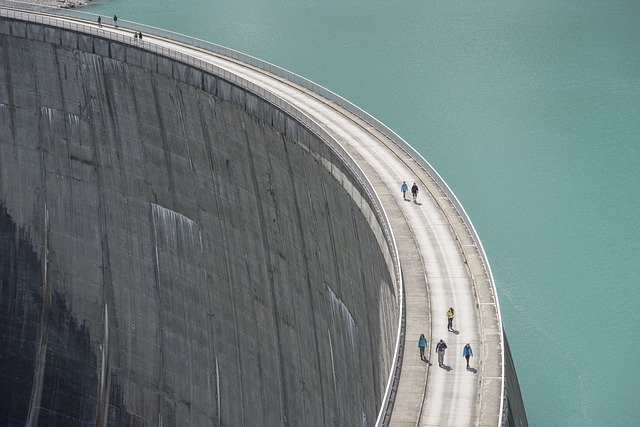
A Big Question Answered
What is Environmental Engineering?
Read a summary using the INOMICS AI tool
As the world belatedly becomes more concerned with climate change and the impact that humans have on the environment, many new career opportunities are popping up. Environmental standards are getting stricter, resource extraction sites are nearing the end of their life cycles and must be cleaned up, the list goes on. Environmental engineers are needed to take these career opportunities to ensure that the human impact on the environment is sustainable. But what exactly is environmental engineering?
What is environmental engineering?
Environmental engineering involves both protecting people from the environment and the environment from people. By designing pollution mitigation systems, for example, environmental engineers help to protect people’s health from the effects of pollution. On the other hand, when an environmental engineer designs a system that treats waste to ensure that any spills into groundwater are less toxic, they are protecting the environment from the negative impacts of humans.
To get their work done, environmental engineers rely on knowledge from a variety of disciplines, including chemistry, geology, physics, biology, soil science, and others – it is a highly interdisciplinary field.
There are many sub-disciplines of environmental engineering, such as water resources engineering, air quality engineering, and hazardous waste management. In these sub-disciplines, environmental engineers may be designing water treatment facilities, finding ways to reduce air emissions, or identifying sustainable ways to dispose of hazardous waste. Whenever there’s a chance to make engineering work more environmentally friendly, an environmental engineer will certainly have a hand in it.
Which industries can environmental engineers work in?
Because of the wide variety of tasks that environmental engineers perform, they work in many different industries and for many different kinds of companies. Here we will look at some of the most popular areas in which they work. Resource industries, such as oil, mining, or forestry, have a significant impact on the environment. To meet government environmental regulations, companies working in these industries often hire environmental engineers to minimize the impact these industries have on the environment. In the mining industry, for example, an environmental engineer might be hired to treat mine waste so it is less toxic.
Many environmental engineers also end up working for government agencies, helping to verify companies’ compliance to environmental regulations, and sometimes even developing environmental regulations themselves. Public infrastructure projects – like dams and bridges – are another area which require the assistance of environmental engineers. They are needed to ensure that the environmental impact from these projects is as small as possible.
 Outside of the public sector, engineering consulting firms offer another good home for environmental engineers. Clients hire engineering consulting firms to do the engineering work they don’t have the expertise to perform, such as designing bridges. These firms are required to consider the environmental impact of their work, so they hire environmental engineers to ensure it is as environmentally sustainable as possible.
Outside of the public sector, engineering consulting firms offer another good home for environmental engineers. Clients hire engineering consulting firms to do the engineering work they don’t have the expertise to perform, such as designing bridges. These firms are required to consider the environmental impact of their work, so they hire environmental engineers to ensure it is as environmentally sustainable as possible.
Environmental cleanup companies like Clean Harbors, Inc. also hire many environmental engineers. Clients come to these companies after they have had a spill or other adverse event that impacts the environment. Theoretically at least, these companies are responsible for cleaning up the mess and bringing back the area to its original state – whether they actually do so is up for debate. In any case, an environmental engineer at one of these companies might work to come up with a plan for how to best deal with a spill, or may help clean up the spill themselves.
Away from the practical, environmental engineers also work in research and education. Professional educators are needed to usher the next generation of environmental engineers into the workforce, and researchers are needed to develop more efficient environmental engineering technologies to secure the planet’s environmental health. Environmental engineers are thus hugely important in the propagation of their own industry!
What education do environmental engineers have?
The best way to start a career as an environmental engineer is – rather unsurprisingly – to get a bachelor’s degree in environmental engineering. However, environmental engineering is a highly interdisciplinary field. Engineers in disciplines such as civil engineering, chemical engineering, and geological engineering have all found careers in environmental engineering.
For graduate studies, master’s degrees and doctoral degrees are available for those who want to further advance their education in environmental engineering. Additionally, because of how interdisciplinary of a field environmental engineering is, anyone pursuing higher degrees in environmental engineering may be accepted if they hold a bachelor’s degree from another engineering discipline. Acceptance to an engineering program is done on a case by case basis at higher education institutions and prospective applicants from other fields should consult the educational institution they wish to attend.
There are also opportunities for technologists in environmental engineering. Environmental engineering technologists often pursue a two-year diploma in environmental engineering technology, which is offered by many polytechnic institutes around the world.
What are the job prospects for environmental engineers?
Environmental standards around the world are getting more stringent. Major projects like oil production facilities and mines are nearing the end of their lifecycle, so these projects need to be cleaned up and the land around them reclaimed. All in all, there will be plenty of work for environmental engineers in the future.
In the United States, environmental engineers are expected to experience job growth of 3% between 2019 and 2019. In 2019, there were 55,800 jobs in environmental engineering. Environmental engineers earn an average of $88,860 (€75,540) per year.
Bottom line
Environmental engineers are responsible for protecting the environment from human impact and for protecting humans from any serious negative effects produced by the environment. They can work in resource industries, with government, in education, in research, with environmental cleanup companies, and for engineering consulting companies. With stricter environmental regulations coming into force around the world and with a greater need to clean up anything that will substantially impact the environment, environmental engineers are needed more than ever.
Whether someone wants to work in the public sector or the private sector, at a desk or in the field, there are a lot of opportunities to work as an environmental engineer. If working to mitigate environmental impact interests you, environmental engineering might be the path for you.
-
- Programa de Maestría
- Posted 1 year ago
MSc Data Analytics (online, part time)
at University of Portsmouth in Portsmouth, Reino Unido -
- Conferencia
- (Hybrid)
- Posted 2 weeks ago
6th International Conference on Mechanical Engineering (ICMECE 2026)
Between 8 Jul and 9 Jul in London, Reino Unido
-
- PhD Program, Master's Program
- Posted 1 year ago
PhD in Economics / Master in Economic Analysis- University of Cyprus
Starts 25 Aug at University of Cyprus in Nicosia, Chipre











